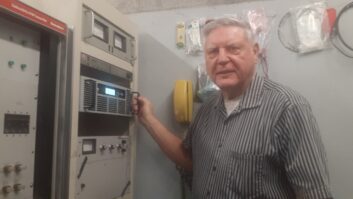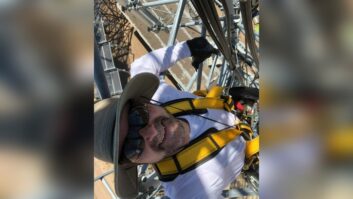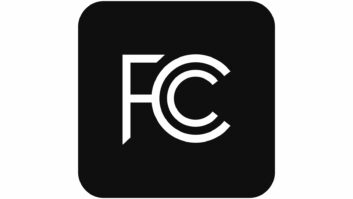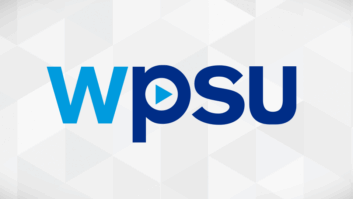FM translators would be allowed to originate some programming content for the first time, if two dozen radio companies get their way.
The group of licensees, under the joint name “Broadcasters for Limited Program Origination,” told the FCC in a filing that “to serve the public interest with increased program diversity,” both FM boosters and translators should be allowed to originate programming for up to 80 hours a week.
Translators and boosters currently rebroadcast only the primary station’s programming. Boosters, which operate on the frequency of their primary station, have been in the news because they are the subject of a separate proposal from GeoBroadcast Solutions. It wants the FCC to allow limited unique programming on synchronized boosters to allow a new geo-targeted or “zoned” capability. The FCC has been taking comments on that.
But the filing by the group of 24 licenses takes the idea much farther.
Allowing FM translators to originate any local programming at all would be a big change, particularly now that so many stations have them in the wake of the AM revitalization effort. AM stations with FM translators would be included under the proposal.
[Read: Let’s Investigate Geo-Targeting, NAB Tells FCC]
“The Broadcasters for Limited Program Origination seek a uniform FCC rule change for both FM boosters and FM translators to allow each to originate programming content provided that the primary station is retransmitted for no fewer than 40 hours in any calendar week,” they wrote.
“Further, rather than restrict new uses of FM booster stations to the GeoBroadcast Solutions content-specific programming, an FM booster or translator should be able to split off programming whenever such split programming content serves its listening audience, provided the primary station continues to be rebroadcast on the FM booster no fewer than 40 hours in any calendar week.”
The proposal was filed by attorney John Garziglia of Womble Bond Dickinson. The 24 licensees own 108 full-service stations and 85 FM translators.
The stations believe the FCC should not concern itself with restricting which kinds of content should be allowed.
“As with FM booster stations, the FCC should not restrict FM translator licensees in their programming content decisions,” they wrote. “Some radio stations may choose to broadcast different localized advertisements. Others may broadcast localized city council meetings for two or more communities in their coverage areas. The broadcast of multiple localized high school sports games may be what serves a particular station’s listeners. Another station may broadcast two different kinds of ethnic entertainment programming at certain times of the day.”
While this filing was made in response to the GBS proposal, it is a much different beast.
Indeed, the group of licensees said they “take no position as to whether the GeoBroadcast Solutions technical proposal … is wise as a radio listener reception matter. Such concurrent broadcasting of different content on the same frequency within the same service area may be an interference disaster.” Rather, they wrote, their goal is “to provide diverse programming over FM translator and booster radio facilities without the FCC’s heavy thumb restricting their choice of content.”
If the GBS concept of originating limited separate programming on same-channel booster stations is acceptable “as a regulatory matter,” then so should be the origination of limited separate programming on FM translators.
The companies also argue that, because the commission’s new translator interference rules “have redefined the coverage contours of FM stations,” the extended coverage contours out to the greater of the 45 dBμ contour or a 25-mile radius from the translator site should now apply to what is regarded as a fill-in station for the purposes of the FM translator rules.
And further marking this proposal as a potential big change, the group would like the commission to designate four-letter call signs with the suffix “-FX” for translators that originate limited programming content. “FM translators originating programming will be serving listening audiences just like any other broadcast station,” they wrote.
The broadcasters in the filing are Miller Communications/Kaskaskia Broadcasting; the Cromwell Group of Illinois and Hancock Communications; TBE LLC; SSR Communications; Port Broadcasting; the Fingerlakes Radio Group and Chadwick Bay Broadcasting; Blackbelt Broadcasting; Mazur LLC; The Original Company, Old Northwest Broadcasting and The Innovation Center; Virden Broadcasting; Lovcom Inc.; Genesee Media Corp.; Viper Communications; Mountain Top Media; Eastern Shore Radio; and MTN Broadcasting and Eldora Broadcasting.
Among familiar broadcaster names on the proposal are Randal Miller, Bud Walters, Terry Barber, Mark Lange, Matt Wesolowski and Cindy May Johnson.







